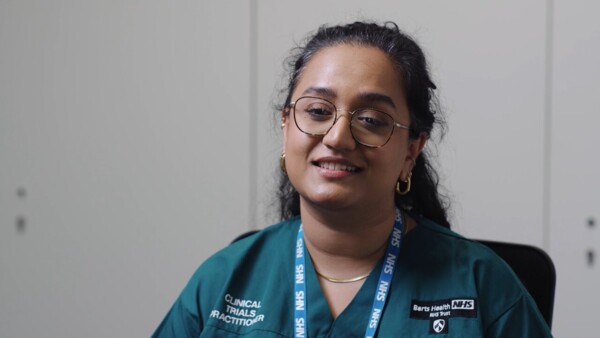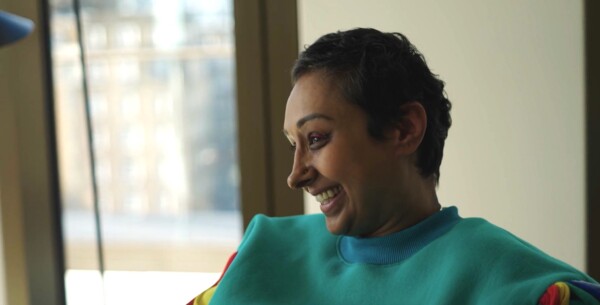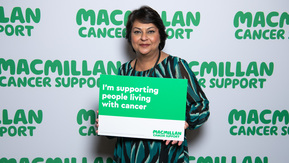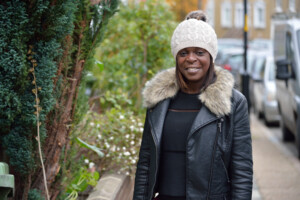Meet Martina
"My name is Martina Warner. I'm 49 years old. I am a mother of three and I live with my partner.
Diagnosis and treatment
In 2019, I was diagnosed with breast cancer cells. And unfortunately, I was diagnosed with the worst strain of the breast cancers, which is a triple negative breast cancer.
I'd finished my treatment, which consisted of the chemotherapy, then radiotherapy. And then about 18 months later, I started getting symptoms again. My nurse booked me in for an MRI and CT scan, which revealed that I had a tumour in my lung and liver. My next treatment was going to be intravenous chemotherapy. It was that time that I decided to seek a second opinion.
My doctor suggested I join a Facebook group specifically for triple negative breast cancer. I found a wealth of information from a lot of the patients there, as opposed to the oncologists themselves.
I met a lady who was on a clinical trial drug. I'd never heard of trial drugs before. I put forward my diagnosis to her, and she said, look, there were trials going on at Barts [Health NHS Trust]. She strongly recommended that I consider them. I call her my guardian angel. Unfortunately, she's no longer with us but I'm still here because of her. Because I made that decision to go ahead with the trial drug."
Martina's clinical trial journey
In this video Martina shares her breast cancer story and encourages others from diverse communities to consider taking part in clinical trials.
You can watch this video with translated subtitles:
I'm still here. Because I made that decision to go ahead with the trial drug.
Taking part in clinical trials
"I was given hard core facts and reality. But it's a risk that I wanted to take because I was at my tether. I was desperate because I could literally feel myself dying.
I had agreed after the consultation to go ahead with the trial, but I had to be fit enough to then start the trial. This is going to sound really bizarre, but I was just elated and jumping for joy. Nobody wants to be on chemotherapy.
It was all about survival. I was given the right information by the professor. They answered all my questions. I did my research with a clinical nurse, and they said trial drugs are actually monitored much more closely than the standard, licensed chemotherapy drug so I felt safe and confident.
And I don't think I would be here had I not taken that up.
Clinical trials is something that I would strongly encourage because I'm living proof, you know, that these things work for a period of time. It gave me two years of life and so I strongly encourage our communities, ethnic minorities to give it a go.
I'd like to see more of our community involved in trial drugs, and to encourage us to be more involved."







